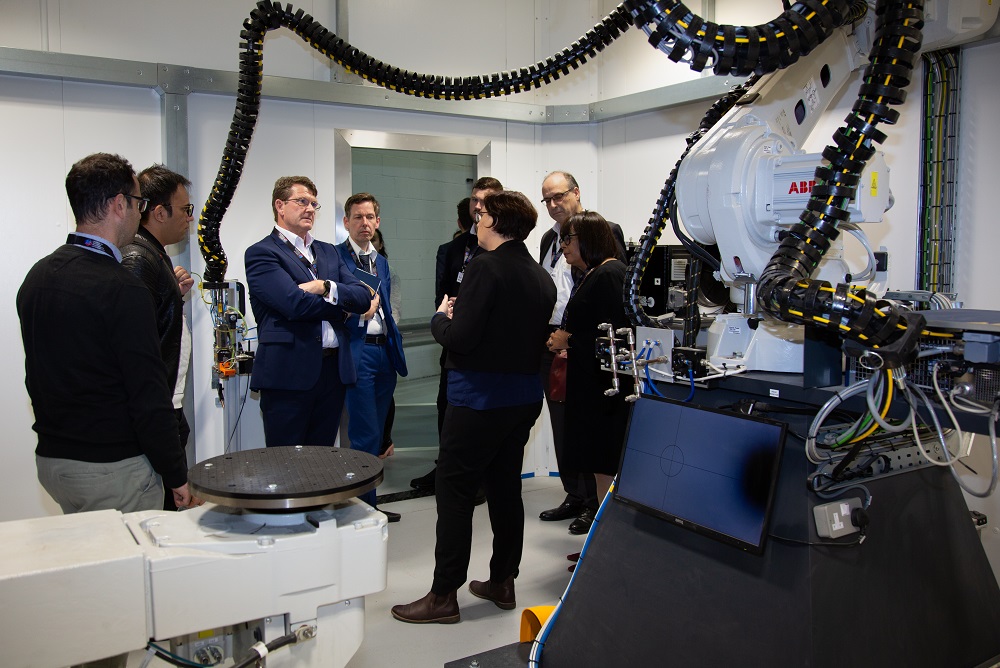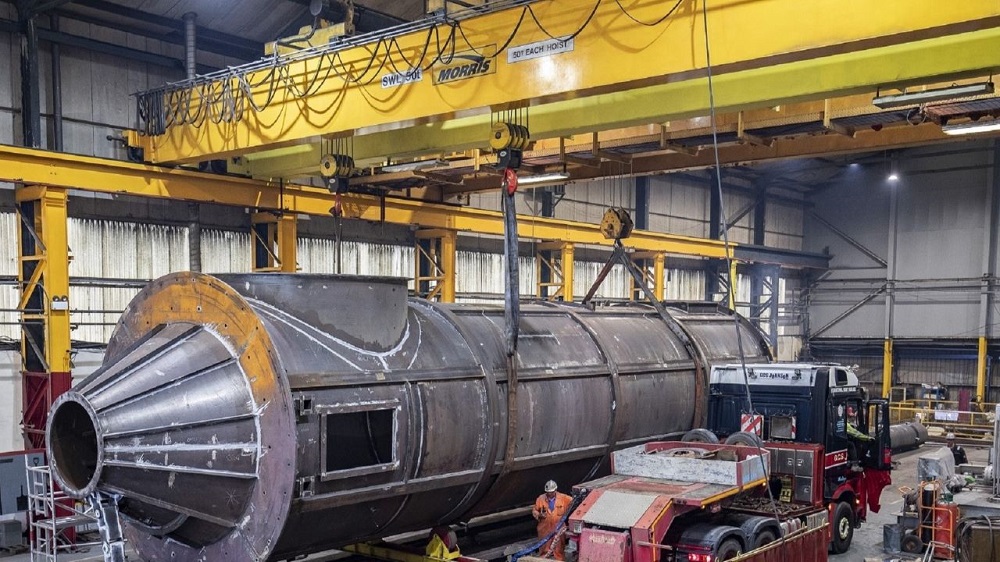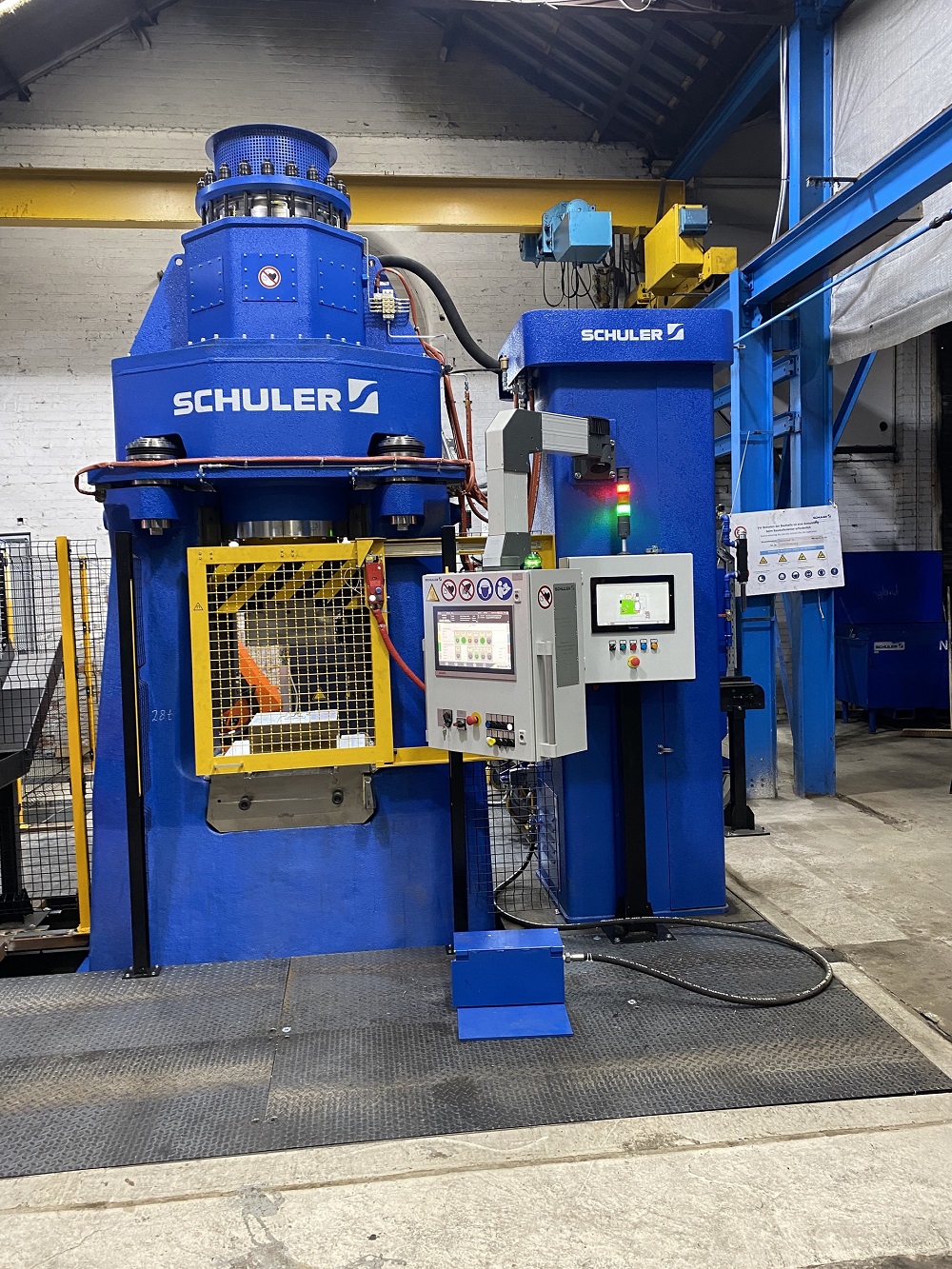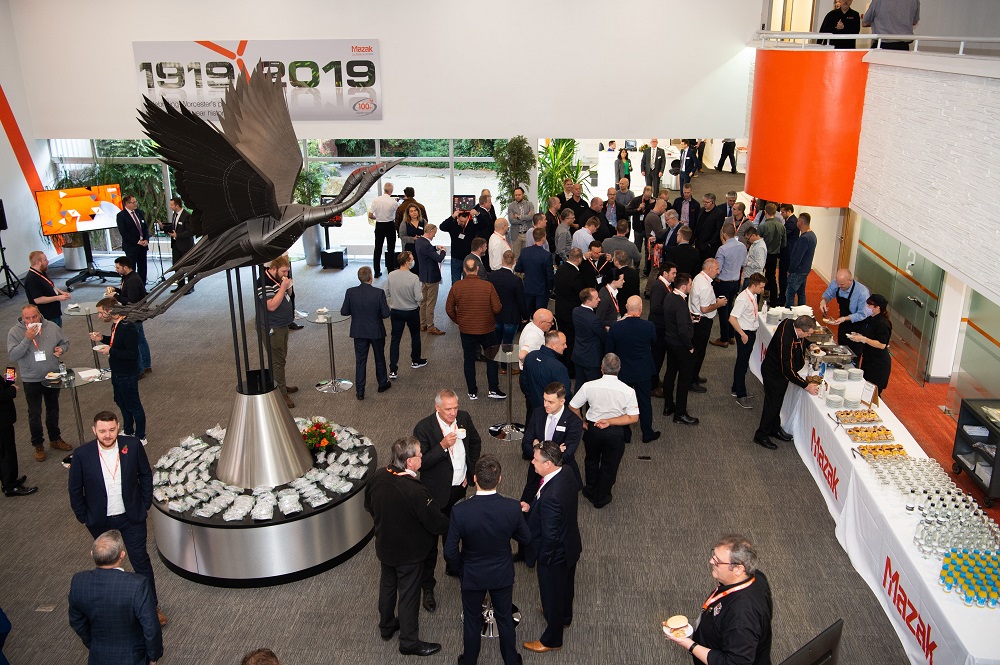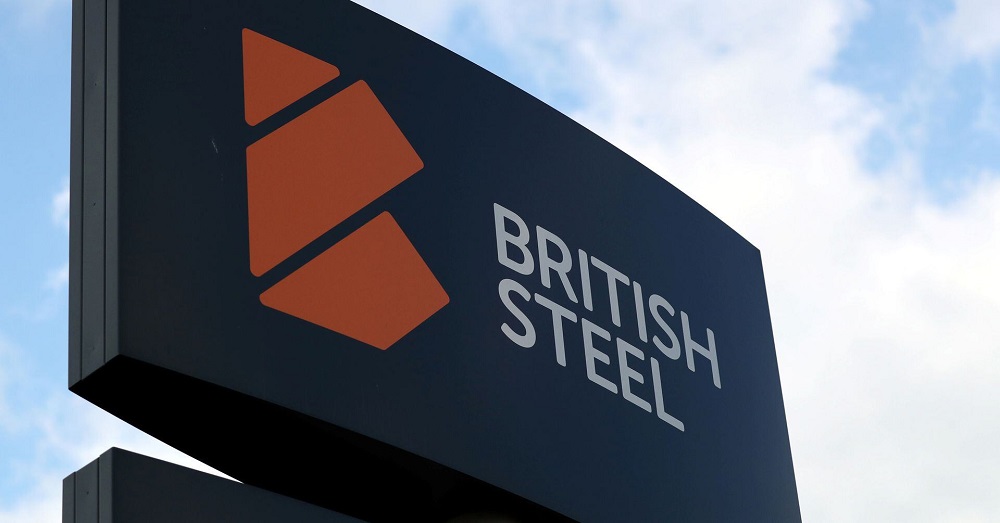Footprint Tools, a UK manufacturer of traditional hand tools, is at the heart of a research project that could see Sheffield spark a recycling revolution in industrial forging. The move has the potential to unlock a step-change in the manufacture of safety-critical components for the aerospace, defence and energy sectors using machining waste and state-of-the-art linear hammer technology.
The Sheffield-based business with 12 employees and two robots can trace its roots back to the 1760s, but has its eyes fixed firmly on the future. Footprint Tools recently unveiled the latest addition to its Admiral Works shopfloor: a £1.4m state-of-the-art Schuler precision linear forge, the only one of its kind in the UK and one of only three in Europe.
As the centrepiece of an R&D partnership between the small family firm and two research institutions – the Henry Royce Institute (Royce) and the University of Strathclyde’s Advanced Forming Research Centre (AFRC), part of the National Manufacturing Institute Scotland Group – the equipment will help consolidate Sheffield and the UK’s lead in advanced forging manufacture.
Following a packed gathering of the AFRC’s Forging and Forming Forum, where the R&D venture was announced, Royce Professor Martin Jackson said he was delighted that the servo technology hammer, initially destined for Manchester, had found a home in Sheffield, the hub of the UK’s forging and forming industry: “This raises forging technology to a completely new level. Our job at Royce and the AFRC is to take the knowledge we unlock from this R&D collaboration and roll it out to forging companies across the country, especially in the use of recycled machining waste such as titanium.”
For further information www.bit.ly/44R55PL






